#businessadvice
Text

For more business insights and advice on leading, innovating, and executing like a top-tier global CEO, please visit us online at www.the365ceo.com.
#The365CEO#CorporateTraining#ExecutiveEducation#Collaboration#YourStrategicAdvantage#BusinessInsights#BusinessAdvice#BusinessSchool#ExecutiveToolKits#Management#Leadership#CSuite#CEOs#CEOMindset#SmallBusiness#SMEs#ProfessionalDevelopment#Entrepreneur#BusinessStrategy#Sales#Marketing#BusinessGrowth#Revenue#Success
4 notes
·
View notes
Text
Pragmatic and Complete Business Advice for Management Professionals
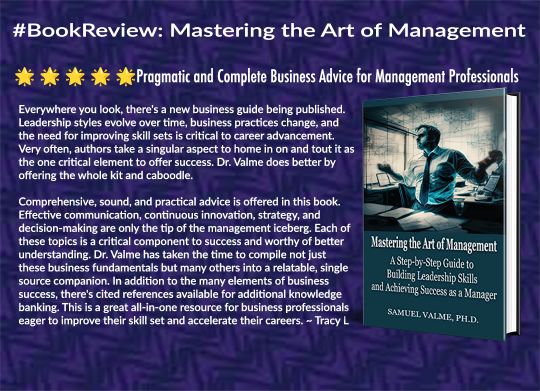
Purchase a copy of the book TODAY --> https://amzn.to/454ML6p
"Everywhere you look, there's a new business guide being published. Leadership styles evolve over time, business practices change, and the need for improving skill sets is critical to career advancement. Very often, authors take a singular aspect to home in on and tout it as the one critical element to offer success. Dr. Valme does better by offering the whole kit and caboodle.
Comprehensive, sound, and practical advice is offered in this book. Effective communication, continuous innovation, strategy, and decision-making are only the tip of the management iceberg. Each of these topics is a critical component to success and worthy of better understanding. Dr. Valme has taken the time to compile not just these business fundamentals but many others into a relatable, single source companion. In addition to the many elements of business success, there's cited references available for additional knowledge banking. This is a great all-in-one resource for business professionals eager to improve their skill set and accelerate their careers." ~ Tracy L
#BusinessAdvice#ManagementProfessionals#LeadershipSkills#CareerAdvancement#PracticalTips#ManagementSuccess#EffectiveCommunication#InnovationStrategies#DecisionMaking#BusinessStrategy#ProfessionalDevelopment#SkillImprovement#BusinessFundamentals#ComprehensiveGuide#ManagementInsights#SuccessStrategies#SkillBuilding#ManagementWisdom#BusinessExcellence#ContinuousLearning#CareerAcceleration#ManagementSkills#ValuableAdvice#CompleteGuide#CareerGrowth#ManagementResource#BusinessReferences#BusinessKnowledge#DrValmeAdvice
2 notes
·
View notes
Text
youtube
Douglas Vandergraph continues his journey of teaching others how to accomplish their dreams and goals by sharing some ideas on how the Vandergraph Team approaches the needed organizational changes after acquiring a new company. Douglas believes that having the right Culture, Purpose, Strategy, and lines of Communication always begins with knowledge acquisition. Douglas is putting himself out there as an example to others so they can see how anyone can take a chance, improve daily, and make a difference in the lives of others. What is it that you want in your life? Douglas can show you how to get it! This is a video series Douglas is completing in the hopes he can help just one person. Dr. Suess once said, "To the world, you may be one person, but to one person, you may be the world."
Follow Douglas on Youtube:
https://www.youtube.com/@douglasvandergraph
Relevant Keywords:
#business #communication_management #purposeplanning #corporatelife #mergersandacquisitions #businessideas #businesstips #businessgrowth #businesscoach #successmindset #successmotivation #abetteryou #betterresults #mentalhealth #friendship #motivationalstory #motivationalstorylife #motivationalstoryinenglish #goals #successsecrets #change #changeyourlife #changes #changeyourmindset #inspirationalstory #selfhelp #selfimprovement
#business#businessadvice#culture#youtube#motivation#success#success story#successful#successstories#motivationalspeaker#motivationalstory#inspirationalstory#motivateyourself
3 notes
·
View notes
Text
#marketingadvice#marketingagency#marketing#wellbeing#mental health#creative#creativity#digitalmarketing#businessadvice#smallbusinessadvice
4 notes
·
View notes
Photo

trustinvestmentplc Agree? 100 @timeinvestors Tag someone that needs to see this Comment below If you like our content hit that follow button! Follow us @trustinvestmentplc ✔Follow us @trustinvestmentplc ✔Follow us @trustinvestmentplc #garyvee #askgaryvee #successtips #thinkandgrowrich #entrepreneurquotes #entrepreneurial #businessadvice #motivationalmonday #successquote #businessquote #grindmode #hustling #lawofvibration #thesecret #thelawofattraction #selfdevelopment #tailopez #dailyquotes #successmindset #success #successfully #successtip #successcoach #successstory #successfull #successdriven #motivationquote #motivateme #quotesforyou #trustinvestmentplc https://www.instagram.com/p/Crz5PsDs3C7/?igshid=NGJjMDIxMWI=
#garyvee#askgaryvee#successtips#thinkandgrowrich#entrepreneurquotes#entrepreneurial#businessadvice#motivationalmonday#successquote#businessquote#grindmode#hustling#lawofvibration#thesecret#thelawofattraction#selfdevelopment#tailopez#dailyquotes#successmindset#success#successfully#successtip#successcoach#successstory#successfull#successdriven#motivationquote#motivateme#quotesforyou#trustinvestmentplc
2 notes
·
View notes
Text
Start Any Business In 5 Steps
Starting a business can seem like an overwhelming task, but it doesn't have to be. With the right steps, you can get your business up and running in no time. In this article, we'll break down five essential steps that will help you start any business in just five easy steps. So if you're looking to turn your dreams into reality, read on for some helpful tips!
Ready to get started? First things first: Have a plan. Before you make any big decisions, take the time to consider your goals and objectives. Research the market and competition, create a budget, and make sure you have enough capital to get started. It may seem tedious at first, but having a well-thought-out plan will save you a lot of headaches down the road.
Next up is choosing the right legal structure for your business. This can range from sole proprietorship to limited liability company (LLC) and more. Depending on your situation and goals, one type of structure may be better than another - so it pays to do some research before making a decision! Once you've chosen the right legal entity for your business, it's time to move onto the next step: filing paperwork with the government.

Analyze The Market
Before launching any business, it’s important to analyze the market and get a complete understanding of the industry. Researching the industry will help you determine what makes your product or service unique, who your competition is, and what the consumer trends are. This will lay the groundwork for creating a successful business plan.
Start by researching your target market. This means identifying who you’re looking to serve and how you can best serve them. To do this, look at demographics such as age, gender, income level, location, etc. as well as psychographics like interests, lifestyle choices and values. Once you’ve identified these areas, begin identifying customer segments that share common characteristics that could benefit from your product or service.
You should also take time to study existing products and services in the industry to understand what your competition is offering and how they're meeting customer needs better than you can. Analyzing competitors can help you identify opportunities in the market that have yet to be tapped into or uncover gaps in service that need to be filled. Doing this research ahead of time will give you an edge when developing your product or service so it stands out from others on the market.
Finally, use all of this information to create a comprehensive business plan for launching and sustaining your venture over time. This plan should include detailed descriptions of your target audience, how you'll reach them through marketing strategies and tactics, pricing for products/services offered, potential growth plans for scaling up operations over time and more. With this data in hand, you'll be ready to move onto step two: setting up shop!
Evaluate Your Budget
Before you dive into starting any business, it's important to evaluate your budget. This helps you determine if the project is feasible and how much money you'll need to invest in the venture. Start by setting a realistic budget which accounts for all the necessary expenses. These can include anything from rent, payroll, marketing and advertising costs, inventory, and other overhead costs. Consider also any potential sources of funding such as bank loans or investor capital.
Next, create a plan for your budget that outlines where money will go each month. Knowing what money is coming in and going out will help keep you organized and on track with your goals. Additionally, make sure to take into account taxes and other fees associated with running your business. Keeping track of these details can ensure that you don’t run into any costly surprises down the road.
Lastly, consider ways to save money when possible. Look for discounts on equipment or supplies needed for your business and don’t be afraid to negotiate on prices wherever possible. Doing this can help ensure that you are getting the most bang for your buck while still reaching success with your venture.
Develop A Business Plan
Creating a business plan is an important step for any entrepreneur. It helps you to think through all the details of your business and create a roadmap for success. A well-thought-out plan can help you secure financing, attract investors, and guide your operations. Here are some key points to consider when creating your business plan:
The first step is to define your business’s mission statement. This should include what products or services you will offer, who your target customers are, and how you plan to differentiate yourself from competitors. Additionally, you should outline what your long-term goals are and how they fit into the overall mission of the business.
Next, it’s important to research the industry and market trends in order to better understand where opportunities exist. You should also assess any potential risks that could affect the success of your businesses such as regulatory changes or competition from other companies. This information can then be used in developing a comprehensive marketing strategy which should include detailed plans on how you will reach potential customers and promote your products or services.
Finally, financial projections are essential for evaluating the potential success of a business venture over time. These projections should include estimated costs to start up the business as well as estimated revenue for each year of operation. It’s also important to consider how much capital needs to be raised in order to get started and when profitability may be achieved. By doing this analysis ahead of time, it can help ensure that there is enough cash flow in place to sustain operations while allowing for future growth opportunities.
Creating a comprehensive business plan is an important part of starting any new venture so it’s important to take the time necessary to do it right. Doing so can provide clarity on what steps need to be taken next and increase the chances of achieving success down the road.
Register Your Business
After having a well-crafted business plan in hand, it's time to get the official paperwork out of the way. Registering your business is a critical step in getting your venture off the ground. Depending on where you live, and the type of business you want to run, there may be different requirements for registering. Here are some common steps to take when registering your business:
First, you'll need to come up with a name for your business and make sure that it is not already taken. You can check online or consult with an attorney who specializes in business law in order to verify if your desired name is available. Once you have chosen an appropriate name, you will need to register it with the Secretary of State or other relevant government agency where your business will be located.
Next, depending on what type of legal structure you've chosen for your business - such as sole proprietorship, limited liability company (LLC), or corporation - you'll need to fill out the necessary forms and register with the proper department within the government. Once registered, you will receive a unique identification number that must be used when filing taxes and other documents related to running a business. It's important that all official paperwork is filled out accurately and filed timely in order to avoid any potential penalties from government agencies.
Finally, once registered with the state or local government agency, you'll need to obtain any required permits or licenses specific for conducting certain types of businesses in certain states or countries. For example, if opening a restaurant there may be health department regulations that must be followed in order for it to open legally. Make sure all these steps are taken prior to starting operations so that everything is done properly from day one.
Obtain Necessary Licenses & Permits
Before you can start any business, it's important to obtain the necessary licenses and permits. Depending on your industry and where you're located, the licensing and permitting requirements may vary. It's best to research what specific licenses and permits you need before moving forward with setting up your business.
First, contact your local government to find out what types of licenses or permits are required. You may also want to check with other agencies such as the IRS or Department of Revenue, as they may have additional requirements for taxes and reporting. Be sure to ask about any costs associated with these documents too.
Once you know what's required, you'll need to fill out an application and submit it along with any supporting documentation that is needed. Once everything is in order, the application will be processed and if approved, you'll receive your license or permit in the mail.
Keep track of all paperwork related to your license or permit, including renewal dates if applicable. Staying up-to-date on paperwork will ensure that everything is in order so there won't be any delays when it comes time to open for business.

Choose A Business Structure
With the licenses and permits in place, it’s time to decide how your business should be structured. This is an important decision that will affect the taxation of your business and your personal liability. There are four main types of business structures: sole proprietorship, partnership, LLC (Limited Liability Company) and corporation.
A sole proprietorship is the most common type of business structure for startups because it's simple to set up and requires minimal paperwork. In a sole proprietorship, you are personally liable for all debts associated with the business. The profits are also taxed under your personal income tax rate.
In a partnership, two or more people share ownership of the business and divide profits based on their agreement. As with a sole proprietorship, both partners are personally liable for all obligations of the business. A Limited Liability Company (LLC) combines features from both partnerships and corporations by allowing owners to have limited protection from financial risk while operating as a separate legal entity with its own taxes.
Finally, a corporation is its own independent entity that has been created through state filing procedures and must use its own name upon incorporation. It offers many advantages such as limited liability protection for shareholders, but requires more paperwork than other structures due to more stringent reporting requirements at federal and state levels.
Depending on your needs, one of these structures may better suit you than others. Research each option carefully before making a decision so that you can choose the best fit for your business goals.
Choose A Location
Choosing a location for your business is an important decision. It should be based on factors such as cost of rent, access to customers, and accessibility for employees. Consider if the space meets the needs of your business; will it provide enough room for staff, storage, and customer flow? It's also important to investigate zoning regulations and other legal requirements in the area.
The type of business you operate will determine whether you need a physical store or office space. If you are running a retail shop or restaurant, you'll need a storefront that's easily visible and accessible to customers. On the other hand, an online business may require co-working space or a home office.
Take time to research potential locations thoroughly before committing to one. Investigate if there are any crime trends in the area which could affect customer safety or security; check with local authorities about parking restrictions; visit during different times of day to assess traffic levels; and consult with a real estate expert who knows the neighborhood well. Ultimately, choosing the right location can help grow your business in many ways.
Hire Employees
Once you have secured a location, it's time to start thinking about hiring employees. This is an important step in launching any business, as your employees will be the face of your company and help to shape its reputation in the marketplace.
First, you'll need to decide on the type of person you want to hire. Consider their skills, experience, and other qualities that are necessary for the job. You should also think about whether or not they will be full-time or part-time. Once you have identified the type of person you want to hire, it's time to begin recruiting.
You can recruit potential employees through job postings on various websites and social media platforms. You may also consider attending career fairs or hosting information sessions at your business. When reviewing applications and interviewing candidates, make sure to take into consideration their qualifications and how well they fit with your company culture.
Hiring the right people is essential for any successful business venture, so take your time and be selective when making your decisions. Make sure that each employee has all the tools and support they need to do their job properly and provide excellent customer service for your clients.
Find Vendors And Suppliers
Finding vendors and suppliers is a critical part of starting any business. Without them, you won't be able to acquire the necessary items to produce your product or service. To find vendors, start by researching potential suppliers online. Look for reviews from previous customers and read about their policies and procedures. You should also consider visiting trade shows or conventions where you can meet potential vendors in person and get a better feel for who they are and what they provide.
After narrowing down your list of potential vendors, contact each one directly to learn more information about their products, pricing, delivery times, minimum order requirements, payment methods, return policies, etc. Be sure to ask questions so that you can make an informed decision regarding which vendor is the best fit for your needs.
Once you have selected a vendor or suppliers, it's time to sign an agreement outlining the terms and conditions of the relationship. Negotiate prices if possible to ensure that you're getting a fair deal while still making sure that your vendor will remain profitable as well. This agreement should protect both parties involved in the transaction and help prevent disputes down the line.
To ensure that your relationship with your vendor remains positive over time, make sure to communicate openly and often about changes in inventory levels, payment schedules or timelines for orders. Additionally, make sure to thank them for any extra effort they put into ensuring your satisfaction with their products or services when appropriate.
Promote Your Business
Now that you have found vendors and suppliers for your business, it's time to promote it. Getting the word out about your new venture is key for its success. Here are five steps for promoting your business.
First, create an online presence. This includes registering a domain name, building a website, and being active on social media platforms such as Facebook, Twitter, and Instagram. Not only will this make it easier for customers to find you, but it also allows you to interact with them directly and build relationships.
Second, take advantage of local marketing opportunities like partnering with other businesses or hosting events in the community. You can also join local chambers of commerce or attend business-related seminars in your area to gain more visibility.
Third, create an email list of potential customers so you can reach out to them with offers and updates about your business. You can also use email marketing campaigns to keep current customers informed about new products or services. Finally, consider investing in paid advertising like Google Ads or Facebook Ads to reach a wider audience.
By following these steps and staying consistent in your promotion efforts, you can ensure that your business reaches its full potential!
Frequently Asked Questions
How Do I Know If My Business Is A Good Fit For The Market?
When starting any business, it's important to consider the marketability of the product or service. Knowing whether your business is a good fit for the market can be the difference between success and failure. Before investing time and money into a venture, you should assess the potential of what you're offering by conducting market research.
Market research involves understanding consumer needs and preferences, as well as what similar businesses are doing in the same industry. This helps you to identify opportunities that may not have been obvious at first glance, while also highlighting potential problems or issues before they become unmanageable. Additionally, obtaining feedback from potential customers can provide invaluable insight into how to shape your product or service and ensure that it meets their needs.
It's also important to keep an eye on current trends in order to stay competitive. By staying up-to-date with industry news and developments, you can quickly adjust your approach if needed in order to remain relevant and successful. Furthermore, gaining a detailed understanding of your target audience can help you craft marketing strategies that will resonate with them more effectively than generic approaches. The combination of these factors ensures that entrepreneurs have a clear picture of their intended customer base and how best to reach them.
Overall, understanding the basics of market research is essential for any business owner who wants to identify whether the product or service they offer is a good fit for their desired market. Taking time to explore these topics ahead of launching your venture can save considerable headaches down the line and give you an edge over competitors who neglect this step entirely.
What Is The Best Way To Secure Financing For My Business?
Starting a business can be daunting. Securing financing is one of the most important steps to ensure a successful launch. With the right preparation, understanding the best way to secure a loan or other form of financing can help budding entrepreneurs take their first steps towards success.
Researching different types of financing available and which are best suited for your particular business model is essential. There are many options, including traditional bank loans, venture capital, angel investments and crowdfunding platforms. Each option has its own set of requirements and it’s important to understand how they work before committing to any particular one.
Having a well-crafted business plan is key when seeking financing from any source. It should include comprehensive information about your business idea, research into the market you plan to enter and a realistic budget with projected revenues and expenses. Additionally, it’s important to have an understanding of what lenders are looking for before attempting to secure funding – this could include personal credit scores and collateral in addition to the viability of the business itself.
Once you have all this in place, you can begin searching for potential investors or lenders who might be willing to fund your venture in exchange for ownership equity or repayment agreements. You may also want to consider joining local networking groups or industry-specific organizations that could provide access to resources or contacts who might be able to help you secure financing. Taking time upfront to educate yourself on the best ways to finance your business will pay off in dividends down the road as you strive towards success as an entrepreneur.
How Can I Protect My Intellectual Property?
Protecting your intellectual property is a vital part of starting any business. It ensures that all the hard work you put into developing, creating and marketing your products or services isn't taken by someone else without your permission. There are several steps you can take to protect your intellectual property, from registering trademarks or copyrights to setting up non-disclosure agreements with partners.
The first step in protecting your intellectual property is to determine what kind of protection it needs. Different types of intellectual property require different levels of security. For example, if you have a patent for a product, you will need to register it with the US Patent and Trademark Office in order to protect it from being copied or sold by someone else without your permission. If you have an idea for a book or software program, then copyrighting it is essential.
Once you know what type of protection is necessary for your intellectual property, the next step is to make sure that all contracts related to it are properly written and executed. This includes contracts between yourself and any partners involved in creating the IP as well as contracts related to its sale or licensing. All contracts should clearly define who owns the IP, how it can be used and what rights each party has when it comes to its use and exploitation. Additionally, confidentiality agreements should also be established between parties whenever possible so that confidential information remains protected from potential competitors or other third parties.
Lastly, once all the legal paperwork has been taken care of, monitoring and enforcing usage rights becomes paramount in order to ensure that no one else is using your IP without permission. Keeping an eye on those who may be infringing upon your creation can help ensure that they don't continue doing so without consequence while also deterring others who may think about taking advantage of others' IP without proper authorization.
What Are The Legal Requirements For Setting Up A Business?
Starting a business can seem like an overwhelming process, especially when it comes to understanding the legal requirements. Knowing what steps you must take to set up your business is essential for ensuring that everything is done correctly and that you are in compliance with any applicable laws. This article will provide an overview of the legal requirements for setting up a business so that entrepreneurs can begin their businesses with confidence.
The first step in setting up a business legally is to choose and register a business name. This can be done through local government offices or online, depending on the type of business you’re starting. After registering the name, you’ll need to determine the type of business structure you’d like to use. Common types include sole proprietorships, partnerships, limited liability companies (LLCs), and corporations. Each type has different benefits and obligations, so it’s important to do your research before selecting one.
Next, you’ll need to obtain any necessary permits or licenses from local, state, or federal governments depending on what kind of business you’re running and where it’s located. Depending on the nature of your business, there may also be taxes or fees associated with obtaining these permits or licenses. Once all the paperwork is taken care of, it’s time to open a bank account for your new company as well as register for any applicable taxes such as income taxes or sales taxes.
By understanding and following these steps for setting up a legal business structure upfront, entrepreneurs can ensure they are in compliance with all regulations while also taking advantage of benefits such as limited liability protection or tax advantages associated with certain structures. Taking the time to understand these legal requirements before starting a new venture will put entrepreneurs on track for lasting success in their new ventures.
How Can I Create A Competitive Advantage Over Other Businesses In My Industry?
Creating a competitive advantage over other businesses in your industry is an important step to setting up a successful business. It's essential to understand the market you are entering and what makes your business unique in order to stand out from the competition. There are various strategies that can be used to gain an edge over competitors, such as offering superior services, creating innovative products, and providing better customer service.
One way of gaining a competitive advantage is by focusing on innovation. This could involve introducing new products with improved features or using cutting-edge technology that rivals don't have access to. To ensure that your business remains ahead of the game, it's important to stay up-to-date with the latest trends and developments in your industry and invest in research and development activities. Additionally, investing in marketing campaigns can help you reach potential customers who may not be aware of your business or its offerings.
Customer service is another key factor when it comes to gaining a competitive advantage. Providing excellent customer service can make all the difference between customers choosing your business or opting for a competitor's product or service instead. You should strive to build relationships with your customers by offering helpful advice and support when they need it. Additionally, developing loyalty programmes or special discounts can help keep existing customers coming back for more and encourage them to recommend your business to others as well.
By understanding the market you're entering and having an effective strategy for gaining a competitive edge, you can set yourself up for success by establishing a strong presence within your industry right from the start. With careful planning and implementation of these strategies, you can ensure that your business stands out from its competitors and continues to thrive long into the future.
Conclusion
Starting a business isn’t easy, but with the right amount of planning and research, it can be done. Knowing if your business is a good fit for the market, securing financing, protecting intellectual property and understanding legal requirements are important steps in the process. Creating a competitive advantage over other businesses in your industry is also essential.
By taking the time to consider these five steps before starting any business, you’re taking an important step towards success. You’ll need to do plenty of research and put together a solid plan to ensure that you have all the information necessary before launching your venture. With some hard work and dedication, you can create a successful and profitable business.
Good luck as you embark on this journey! With the right mindset and enough determination, you can make it happen – and don’t forget to enjoy yourself along the way! Starting your own business can be an incredibly rewarding experience, so don’t hesitate to take that first step towards success today.
#startingabusiness#entrepreneurship#smallbusiness#businessmindset#makemoney#financialfreedom#hustle#sidehustle#businessgoals#successmindset#moneytips#startupadvice#moneymanagement#personalfinance#businessadvice#profitablebusiness#businessopportunities#moneymakingideas#businessgrowth#wealthbuilding#businesstips
3 notes
·
View notes
Text

Do you want to learn the fastest and easiest way to reach financial independence? FIND OUT HERE.
#affiliatemarketing#dropshipping#makemoneyonline#moneyonline#money#makemoney#online#onlinemarketing#marketing#internetmarketing#internetbusiness#business#businesstips#businessadvice#entrepreneur#entrepreneurship#blogging#blogger
2 notes
·
View notes
Text
A Comparison of Affiliate Marketing vs Dropshipping: Which Is Better?

Unsure of the differences between affiliate marketing vs dropshipping? Our comprehensive comparison will break it down for you. From understanding the core principles to the key differences, this article will help you decide which one is right for your business.
#affiliatemarketing#dropshipping#makemoneyonline#moneyonline#money#makemoney#online#onlinemarketing#marketing#internetmarketing#internetbusiness#business#businesstips#businessadvice#entrepreneur#entrepreneurship#blogging#blogger
3 notes
·
View notes
Text


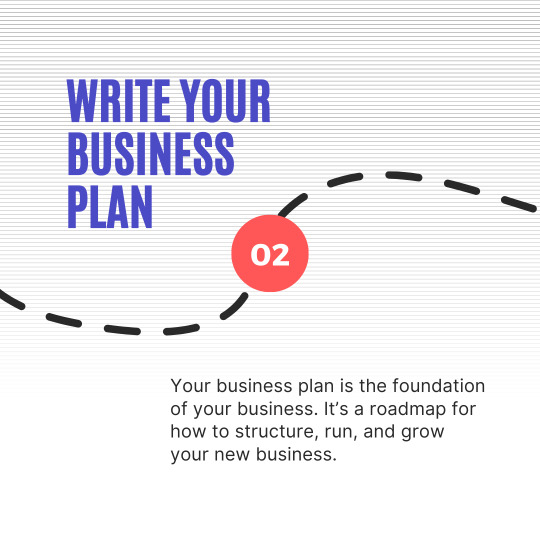
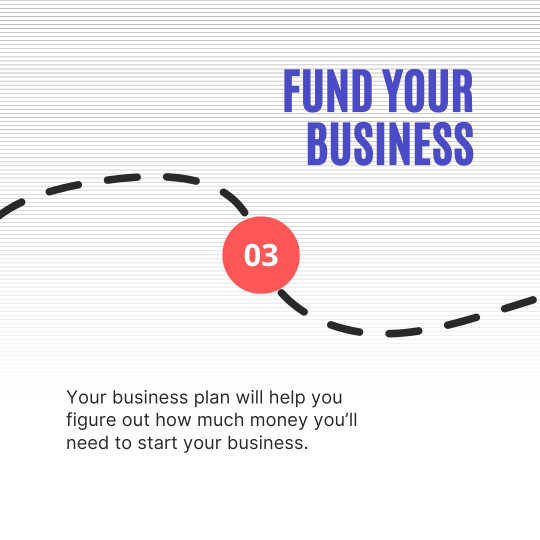

Steps To Start Your Business in #2023
➡️Conduct Market Research
➡️Write Your Business Plan
➡️Fund Your Business
#businessadvice#business#marketing#2023trends#2023planning#2023goals#professionaldevelopment#growbusiness#marketresearch#raystechserv
3 notes
·
View notes
Text

45 Minutes Instagram Engagement Plan: No one will tell you | Only on Digital Owls | Instagram Strategy | Instagram Growth – Check It Out!!
.
.
.
Blog url - https://digitalowls.in/social-media-marketing/instagram/simple-epic-instagram-engagement-plan-best-guide/
#instagramgrowth#makemoneyathome#businessconsultant#businesslife#businesscoach#businessminded#businessopportunity#businesstips#businessgrowth#entrepreneurquotes#investmentstrategies#businessmarketing#entrepreneurmotivation#entrepreneurgoals#entrepreneurtips#businessadvice#entrepreneur101#businessstrategy#successsecrets#entrepreneurmind
3 notes
·
View notes
Text

For more business insights and advice on leading, innovating, and executing like a top-tier global CEO, please visit us online at www.the365ceo.com.
#The365CEO#CorporateTraining#ExecutiveEducation#Collaboration#YourStrategicAdvantage#BusinessInsights#BusinessAdvice#BusinessSchool#ExecutiveToolKits#Management#Leadership#CSuite#CEOs#CEOMindset#SmallBusiness#SMEs#ProfessionalDevelopment#Entrepreneur#BusinessStrategy#Sales#Marketing#BusinessGrowth#Revenue#Success
2 notes
·
View notes
Text
A Simple Guide to Briefing a Marketing Agency
Regarding marketing, it can be tough to know where to start. That's why many businesses turn to marketing agencies to help them navigate the complicated world of advertising and promotion.
However, briefing a marketing agency can be daunting.
How do you ensure they understand your business, goals, and audience? In this guide, we'll walk you through the steps you need to take to brief a marketing agency effectively.
Before diving into the specifics, let's discuss why briefing is important. A good brief sets clear expectations and helps the agency understand your goals. It also helps to avoid misunderstandings and miscommunication down the line. In short, spending time on a thorough brief can save you time and money in the long run.
So, let's get started!
Define Your Business Goals
Before you start working with a marketing agency, you must define your business goals. What do you want to achieve? Do you want to increase sales, boost brand awareness, or launch a new product? Your goals will shape your marketing strategy, so it's essential to be clear about them from the outset.
When defining your goals, it's helpful to make them SMART – specific, measurable, achievable, relevant, and time-bound. For example, instead of saying, "We want to increase sales," you might say, "We want to increase sales by 10% in the next quarter by targeting our existing customer base." This gives the agency a clear target to aim for.
Remember, your goals should be aligned with your overall business strategy. Make sure you communicate this to the agency so that they can develop a marketing plan that fits with your broader objectives.
Identify Your Target Audience
Next, you need to identify your target audience. Who are you trying to reach with your marketing efforts? What are their characteristics, interests, and pain points? Understanding your audience is critical to developing effective marketing messages.
Start by creating buyer personas – fictional representations of your ideal customers. These personas should be based on market research, customer data, and intuition. They should include age, gender, income, job title, and interests.
Once you've created your personas, share them with the agency. This will help them understand who they're targeting and what messaging will resonate with them.
Outline Your Budget
Marketing can be expensive, so it's essential to be clear about your budget from the outset. Your budget will determine what strategies and tactics you can afford to pursue.
When outlining your budget, be as specific as possible. Break it down by channel – how much will you spend on social media advertising, email marketing, events, etc.? Remember to include any additional costs, such as design fees or production costs.
It's also helpful to include any constraints on your budget. For example, you might say, "We have a budget of $10,000 for this campaign, but we can't spend more than $2,000 on Facebook ads." This will help the agency develop a plan that fits within your budget.
Provide a Timeline
Marketing campaigns take time to develop and execute, so providing a timeline for the agency will help them plan their resources and ensure everything is delivered on time.
Your timeline should include key milestones, such as the launch date, the dates for any events or promotions, and the dates for reporting and evaluation. Ensure you build enough time for the agency to develop and revise its ideas.
Remember, timelines can be flexible, but having a clear plan in place from the outset is helpful.
Describe Your Brand
Your brand is more than just a logo – it's the personality and values that your business embodies. It's important to communicate this to the agency so that they can develop messaging and visuals that are consistent with your brand.
When describing your brand, consider your mission, values, and unique selling proposition. What sets you apart from your competitors? What do you want to be known for?
It's helpful to provide examples of your brand in action – for example, previous marketing campaigns or social media posts as this will give the agency a sense of your brand's tone and style.
Share Your Company Culture
The agency should know your company culture is another important aspect of your business. Your culture shapes how you work and how you interact with your customers.
When sharing your company culture, consider your values, working style, and team dynamics. Do you have a fun and playful culture, or are you more serious and professional? Do you have a flat hierarchy or a more traditional structure?
Sharing your company culture will help the agency understand what working with you is like and how they can best support your business.
Provide Insight on Past Marketing Efforts
Finally, providing the agency with insight on past marketing efforts is helpful. What has worked well in the past? What hasn't worked? Do you have any data or metrics to share?
This information will help the agency develop a plan that builds on your past successes and avoids past mistakes. It will also help them understand what metrics you're interested in tracking and reporting on.
Remember, don't be afraid to share your failures – they can be just as valuable as your successes in guiding future marketing efforts.
Discuss Your Competitors
While your business goals and target audience are essential, providing insight into your competitors is also helpful. Who are they, and what are they doing well? What are their weaknesses?
Understanding your competitors will help the agency develop a plan that sets you apart from the crowd. It will also help them identify potential threats and opportunities.
When discussing your competitors, be as specific as possible. Provide examples of their marketing campaigns and messaging to help the agency develop a plan differentiating you from your competitors.
Work Together
Briefing a marketing agency is crucial in creating a successful marketing campaign. By defining your business goals, identifying your target audience, outlining your budget, providing a timeline, describing your brand and company culture, sharing insight on past marketing efforts, and discussing your competitors, you can ensure that the agency understands your business and develops a plan that aligns with your objectives.
Spending time on a thorough brief can save you time and money in the long run and help you achieve your marketing goals. The key takeaway from this guide is that an excellent brief sets clear expectations and allows the agency to understand your goals. It also helps to avoid misunderstandings and miscommunication down the line. Following the steps outlined in this guide, you can create a detailed brief that sets your marketing campaign up for success.
So, if you're planning to work with a marketing agency, take the time to brief them properly and ensure you get the best results.
You can read this and other articles like it by visiting https://www.makindesign.com/blog/
#marketing#startup#marketingagency#digitalmarketing#business#longform#businessadvice#businessmindset
3 notes
·
View notes
Text
From Wind Power to Space: How Scotland is Leading the Way in Innovation
Scotland, known for its picturesque landscapes and rich history, is rapidly becoming a focal point of global innovation, particularly in renewable energy and space technology.
This transformation is not just reshaping the Scottish economy but also positioning Scotland as a leader in the critical sectors of the future.
Scotland’s journey toward innovation began with its investment in renewable energy, particularly wind power. The country boasts some of the world’s most ambitious renewable energy targets, with a plan to reach net zero greenhouse gas emissions by 2045, five years ahead of the rest of the UK.
Wind Power Dominance
Wind power is at the forefront of Scotland’s renewable energy landscape. The country is home to the world’s first floating wind farm, Hywind Scotland, which started operation off the coast of Peterhead in 2017. This project demonstrates innovative technology and highlights Scotland’s potential in harnessing wind energy from deeper waters where traditional fixed-foundation turbines are not feasible.
Scotland’s geographical advantage, with its expansive coastlines and high wind speeds, makes it an ideal location for wind power generation. This has led to the development of significant onshore and offshore wind farms, contributing to over 97% of the country’s electricity consumption coming from renewable sources in some months.
Innovation Beyond Wind
Beyond wind, Scotland is exploring other renewable technologies, including tidal energy and green hydrogen. Projects like the MeyGen tidal stream project in the Pentland Firth, one of the world’s largest tidal power plants, underscore Scotland’s commitment to innovation in renewable energy.
Ascending to the Stars: Scotland’s Space Sector
Scotland is also carving out a niche in the space sector, boldly leaping from terrestrial energy to celestial ambitions. The country’s strategy aims to secure 5% of the global space market by 2030, translating to an estimated value of £4 billion.
Satellite Launch Capabilities
Scotland is ideally positioned for satellite launches, given its high latitude and vast open coastlines facing the North Sea. This geographical positioning is perfect for polar and sun-synchronous orbits, commonly used by Earth observation satellites. As a result, several sites across Scotland are being developed as spaceports, with SaxaVord Spaceport in Shetland leading the charge.
Building Satellites
Beyond launches, Scotland is significant in the satellite manufacturing industry. Glasgow builds more satellites than any city outside the United States, with companies like AAC Clyde Space leading in producing small satellites and CubeSats. Given the growing demand for small-scale, cost-effective satellites in global telecommunications, this expertise in small satellite technology is crucial.
Impact on Economy and Education
Scotland’s innovation in wind power and space technology is a testament to its engineering capabilities and a significant driver of economic growth. The renewable and space sectors create new jobs, attract investments, and stimulate science and technology education.
Educational Synergy
Scottish universities are integral to this innovation wave, offering specialised courses in renewable energy and aerospace engineering. Institutions like the University of Edinburgh and Strathclyde provide research and development that fuel these sectors. Moreover, these educational programs ensure a steady pipeline of skilled professionals ready to meet the demands of these growing industries.
A Pivotal Role
Scotland’s push from leading in wind power to making a mark in the space sector exemplifies its strategic diversification and commitment to innovation. By capitalising on its natural resources and historical strengths in engineering and technology, Scotland is not only enhancing its economic landscape but also playing a pivotal role in addressing some of the global challenges of our time.
As Scotland continues to innovate, it sets a precedent for other nations to leverage their unique strengths to significantly impact Earth and space.
Stand Out in the Market with Taesea’s Innovative Solutions
If you’re interested in learning more about how Taesea can assist your business in developing your brand, marketing, and design requirements, please do not hesitate to contact us. We have a team of experts who are passionate about creating innovative and effective solutions that will help your business stand out in the market. Contact us today to learn more about our services and how we can help your business succeed.
#branding#graphic design#marketing#scotland#businessadvice#businessgrowth#business#renewables#renewable energy#green energy#spaceport#saxavord
0 notes
Text
#finance#investment#financialprofessional#financialfreedom#accounting#businessadvice#accountinglife#investing#business
0 notes
Text
Full Guide To Top Georgian Banks for Expats 2024
#hiringin2024#business consulting#financial#services#banking#businessadvice#business tips#businessconsulting
0 notes
Text
DIFFERENCES BETWEEN BUSINESS NAME AND LIMITED COMPANY

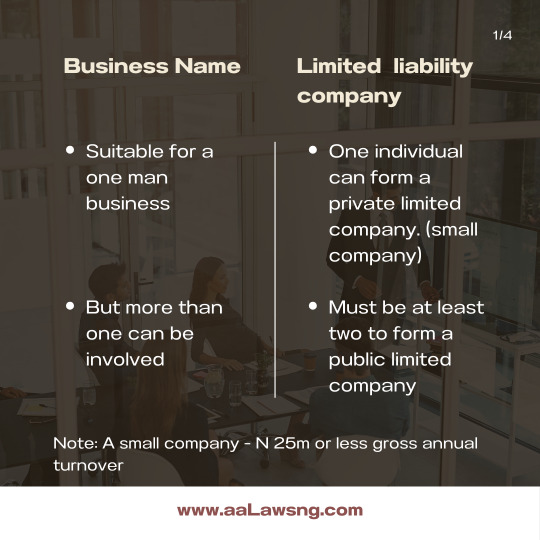


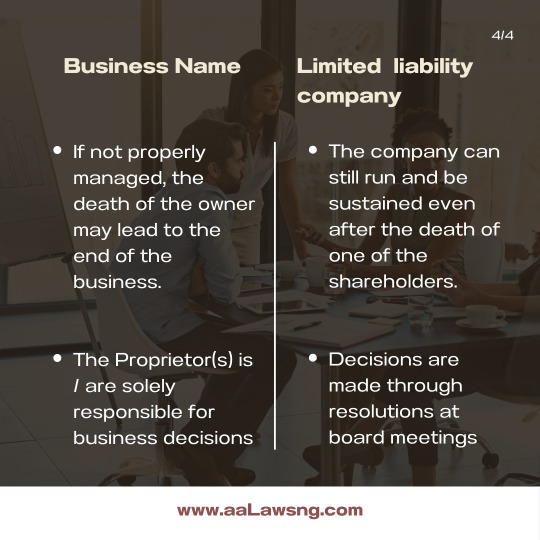

#entrepreneur#BusinessTips#Entrepreneurship#businessname#limitedcompany#Startup#BusinessAdvice#SuccessTips#EntrepreneurLife#BusinessOwners#MarketingStrategy#Leadership#aalawsng#lawfirmsinibadan
0 notes